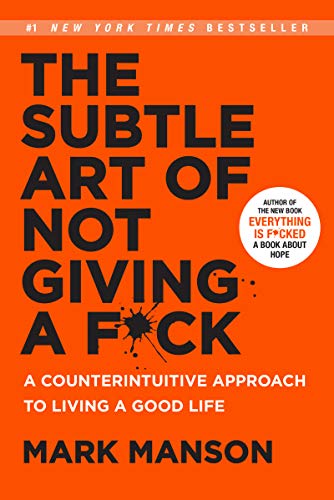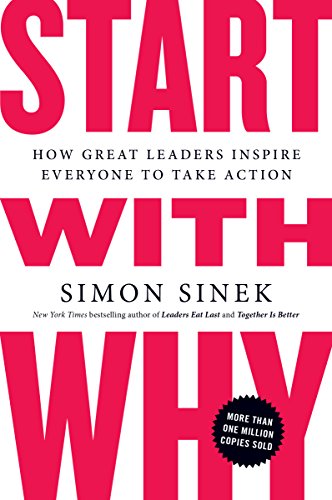"I Want to Start a Business But Have No Ideas": Unleashing Your Entrepreneurial Spirit

Modern Mentor AI
Posted in Business • 6 min read • March 5th, 2026
Relevant Influencers
Timothy Ferriss
Business, Investing
Tim Ferriss is an acclaimed author, investor, and business innovation guru. Recognized as one of Fast Company's 'Most Innovative Business People' and Fortune's '40 under 40', he has advised early-stage technology companies, such as Uber and Facebook. Ferriss has authored four #1 New York Times and Wall Street Journal bestsellers, with 'The 4-Hour Workweek' being his flagbearer. His 'The Tim Ferriss Show' podcast made him 'the Oprah of audio'. Ferriss graduated from Princeton University in 2000, studying language acquisition and East Asian Studies. He honed his non-fiction writing with Pulitzer Prize winner, John McPhee.
Ray Dalio
Business, Economics
Ray Dalio, founder and co-chairman of Bridgewater Associates, has built the world's largest and highest performing hedge fund in the past 40 years. He is the author of Principles, a number one New York Times Bestseller and Amazon Business Book of the Year. Appearing on Time 100's list of the world's most influential people and Bloomberg Markets' list of 50 most influential individuals, Dalio resides with his family in Connecticut.
Rob Fitzpatrick
Business, Marketing
Rob Fitzpatrick is an author, entrepreneur, and business mentor. Over 14 years, he's run numerous small businesses and shared his knowledge in three handbooks: The Mom Test, The Workshop Survival Guide, and Write Useful Books. His books are studied at Harvard, MIT, and UCL, while companies like SkyScanner and Shopify utilize them for training. Having run training programs for companies like HP and Sony Mobile, he's also helped mentor numerous startups. His advice is practical and proven. Fitzpatrick also shares insights via short YouTube videos and more information about him can be found at robfitz.com.
Michael E. Salla
Business
Dr. Michael Salla is a renowned scholar with expertise on international politics, conflict resolution, and U.S. foreign policy. He has held academic appointments at several institutions, including American University and George Washington University in Washington D.C., and Australian National University in Canberra, Australia. Dr. Salla, who holds a Ph.D in Government, has authored multiple books on international politics, and is credited with pioneering 'exopolitics', a field studying political processes associated with extraterrestrial life. Salla has written a series of best-selling books on the subject. He is the Founder of the Exopolitics Institute.
Howard Marks
Business, Investing
Howard Marks is the co-founder and chairman of Los Angeles-based investment firm, Oaktree Capital Management, which boasts $80 billion under management. Academically, Marks achieved a Bachelor's Degree in Finance from the Wharton School and solidified his background by gaining an MBA in Accounting and Marketing from the University of Chicago.
Jake Knapp
Business, Marketing
Jake Knapp, author of "Make Time" and "Sprint", is renowned for creating the design sprint during his decade at Google and Google Ventures. He has mentored 150+ companies such as Slack, Uber, New York Times and LEGO, teaching his process. He is based in San Francisco where he resides with his family.
Marty Cagan
Business, Marketing
Marty Cagan, founder of the Silicon Valley Product Group, is a renowned figure in the tech industry who was previously an executive at notable companies like Hewlett-Packard, Netscape, and eBay. His expertise spans product management, software development, product marketing, user experience design, software testing, and general management. He also offers guidance to tech organizations via SVPG. A prominent author, his written works include "INSPIRED: How To Create Tech Products Customers Love", "EMPOWERED: Ordinary People, Extraordinary Products", and "TRANSFORMED: Moving To The Product Operating Model". He is also a distinguished keynote speaker.
Lyn Alden
Business, Investing
Lyn Alden is a renowned investment and macroeconomic analyst offering research for diverse investors through her platform, lynalden.com. Her unique expertise combines engineering and finance, focusing on energy and monetary system analysis. Besides research publishing, Alden holds positions on the board of Swan.com and acts as an advisor to venture capital firm ego death capital.
Donald A. Norman
Business
Don Norman is a distinguished designer known for his focus on the intersection of people and technology. Noted by Business Week as one of "the world's most influential designers," Norman's influence spans books, lectures, and consultations. He has held numerous esteemed positions, such as Vice President at Apple, and has been honored with multiple degrees and awards. His prolific work includes renowned books like "The Design of Everyday Things" and "Design for a Better World". Norman asserts the importance of design in solving pressing global issues, emphasizing it as a tool to understand and address human behavior. Find his work at www.jnd.org.
Brendan Kane
Business, Marketing
Brendan Kane is a forward-thinking strategist for Fortune 500 companies, celebrities, and brands, specializing in audience engagement. He began his career at Lakeshore Entertainment, pioneering the company's first influencer campaign and working on films generating a $685m worldwide gross. Kane later developed platforms and applications for high-profile clients such as Taylor Swift and Rihanna, accessed by over 50 million people globally. He co-created an advertising technology with MTV, utilized by companies like MGM, Lionsgate, and Sony. Past roles include Vice President of Digital for Paramount Pictures and leading a major social optimization firm. Known for acquiring a million followers in under 30 days, Kane wrote bestseller One Million Followers to share his methods.
The journey to entrepreneurship often begins with a single, compelling idea. Yet, for many aspiring business owners, this initial spark of inspiration remains elusive, leaving them pondering, "I want to start a business but have no ideas." The genesis of a business idea is not as mystical as it might seem—it is usually the product of curiosity, observation, and the willingness to solve problems or improve existing solutions. In this article, we'll explore how to cultivate and discover these ideas, and where to look for that spark of inspiration that could lead to your next big venture.

Where Do Ideas Come From?
Ideas are born from a myriad of sources, often when we least expect them. They can sprout from personal experiences, challenges faced by those around us, or simply from our interactions with the world. The key to uncovering these ideas lies in adopting a mindset of curiosity and observation. Keep your senses attuned to the problems and inefficiencies you encounter in daily life, as well as the passions and interests that excite you.
Tactics to Spur Ideas:
Problem-Solving: Start by identifying everyday problems, no matter how small, and think of innovative ways to solve them.
Improvement Hunting: Consider existing products or services you use and brainstorm ways they could be enhanced.
Gap Analysis: Look for gaps in the market where consumer needs are not fully met by current offerings.
Trend Watching: Stay informed about emerging trends and technologies, and consider how they could be applied or adapted to new areas.
Cross-Industry Inspiration: Draw inspiration from solutions in one industry that could be adapted to solve problems in another.

Where to Find Inspiration:
Reading Widely: Dive into books, articles, and reports across various genres and industries. Look for patterns, unmet needs, and emerging trends.
Talking to Friends and Peers: Engage in conversations with a diverse range of people. Their experiences and perspectives can offer unique insights and spark ideas you might not have considered.
Utilizing AI Tools: Leverage AI platforms like ChatGPT to explore ideas, gather information on various topics, and simulate brainstorming sessions.
Observing Your Environment: Be mindful of your daily interactions and the services you use. Every frustration or moment of delight could be the seed of a business idea.
Online Forums and Communities: Participate in online communities related to your interests. These platforms can be goldmines for understanding common problems and gaps in the market.
Embracing the Learning Journey
At the heart of finding a business idea is the commitment to continuous learning. For those feeling stuck with "no ideas," this perceived ignorance is not a barrier but an opportunity. By investing time in expanding your knowledge and exploring diverse fields, you increase the chances of stumbling upon a problem, trend, or gap that sparks your entrepreneurial spirit. Remember, the more you know, the more connections you can make between seemingly unrelated concepts, leading to innovative business ideas.
It's crucial to understand that not all businesses are built on entirely novel concepts. In fact, many successful ventures are based on doing what others do but with a unique twist—be it superior customer service, more efficient operations, or more effective marketing strategies. The aim is not always to reinvent the wheel but to offer a wheel that's more aligned with what a specific group of customers needs or desires.
Cultivating Your Idea Garden
Think of your mind as a garden where ideas can bloom. Just as a garden requires care and the right conditions to thrive, so does your idea generation process. Here are some steps to cultivate your "idea garden":
Nurture Your Curiosity: Allow yourself the freedom to explore new topics, ask questions, and delve into areas outside your comfort zone.
Create an Idea Journal: Keep a dedicated notebook or digital document to jot down thoughts, observations, and questions that come to mind throughout the day. Don't overcomplicate it, use Apple Notes, or your preferred note keeping solution. Whatever you need to quickly take notes.
Seek Feedback and Collaborate: Share your budding ideas with trusted friends or mentors. Feedback can help refine your thoughts and uncover angles you may not have considered.
Set Aside Regular Ideation Time: Dedicate time each week to brainstorm and reflect. This can be a solo activity or involve brainstorming sessions with others.
Embrace Experimentation: Be willing to test out your ideas, no matter how unformed they may seem. Prototyping and experimentation can lead to unexpected discoveries.
Starting a business begins with the seed of an idea, but finding that idea can seem daunting. By adopting a mindset of curiosity, engaging in continuous learning, and actively seeking inspiration from a variety of sources, you can begin to uncover opportunities that resonate with your skills, passions, and the needs of potential customers. Remember, the journey to entrepreneurship is as much about the process of discovery as it is about the destination. So, embrace the adventure, keep your mind open, and soon, you'll find that the question "I want to start a business but have no ideas" transforms into "I have so many ideas—now, which one to pursue first?"
Relevant books
Relevant Influencers
Timothy Ferriss - 371
Innovative businessperson, technology advisor and best-selling author known as ‘the Oprah of audio’.Ray Dalio - 345
Founder and co-chairman of world's largest, top-performing hedge fund; author of best-selling book.Rob Fitzpatrick - 163
Business owner and author of three enduring handbooks used in universities and companies globally.Michael E. Salla - 157
A renowned scholar in international politics and peacemaking, best known as a pioneer in 'exopolitics', and a bestselling author.Howard Marks - 94
Cofounder and chairman of Oaktree Capital, with a finance degree and an MBA in accounting and marketing.Jake Knapp - 93
Author of "Make Time" & "Sprint", created design sprint at Google, coached 150+ companies.Marty Cagan - 62
Tech executive with experience at eBay, Netscape, and HP, founded SVPG, is an author and global speaker.Lyn Alden - 51
Independent investment analyst with expertise in energy and monetary systems, board member, and VC advisor.Donald A. Norman - 48
Influential designer and author with a focus on human-tech interactions, former Apple VP, and co-founder of Nielsen Norman Group.Brendan Kane - 0
Innovative digital strategist successfully designing ad tech for brands, celebrities; garnered 1M followers in <30 days.Relevant Books

Rich Dad Poor Dad: What the Rich Teach Their Kids About Money That the Poor and Middle Class Do Not!
93125

The Gifts of Imperfection: Let Go of Who You Think You're Supposed to Be and Embrace Who You Are
40836

















